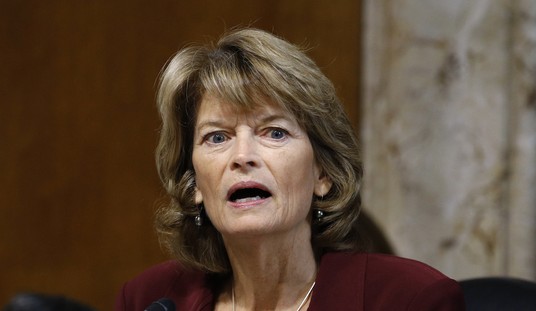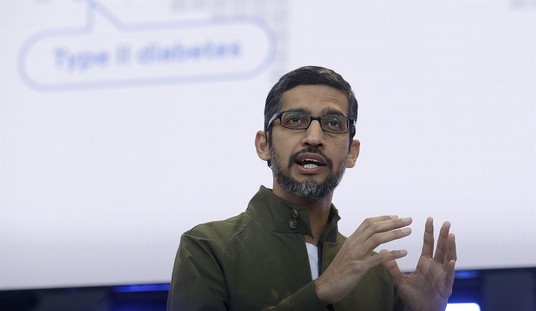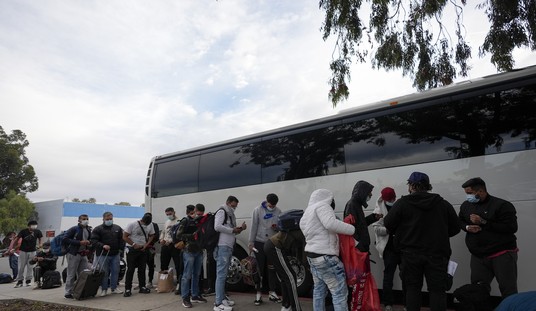In lieu of a “Quotes of the Day,” some food for thought from the liberal-in-chief while we watch the debate in Vegas to see which bright light of tolerance will succeed him.
Here’s a snippet from a conversation he had last month with novelist Marilynne Robinson for the New York Review of Books. Spot the hedge.
The President: But you’ve struggled with the fact that here in the United States, sometimes Christian interpretation seems to posit an “us versus them,” and those are sometimes the loudest voices. But sometimes I think you also get frustrated with kind of the wishy-washy, more liberal versions where anything goes.
Robinson: Yes.
The President: How do you reconcile the idea of faith being really important to you and you caring a lot about taking faith seriously with the fact that, at least in our democracy and our civic discourse, it seems as if folks who take religion the most seriously sometimes are also those who are suspicious of those not like them?
Robinson: Well, I don’t know how seriously they do take their Christianity, because if you take something seriously, you’re ready to encounter difficulty, run the risk, whatever. I mean, when people are turning in on themselves—and God knows, arming themselves and so on—against the imagined other, they’re not taking their Christianity seriously. I don’t know—I mean, this has happened over and over again in the history of Christianity, there’s no question about that, or other religions, as we know.
There are actually two hedges. One is the word “sometimes,” which allows him to claim that he wasn’t drawing any firm conclusion about the tendencies of very religious people, just noticing what they’re capable of under certain conditions, at certain moments. The other is the absence of the word “most” before “suspicious” towards the end of what he says. Clearly he means to imply that there’s some correlation between religious ardor and xenophobia — which is right in line with his famous comments about bitter-clingers and immigration in 2008 — but the two hedges drain all the force from his statement. All he’s left saying is that some very religious people sometimes demonstrate some suspicion toward certain strangers who shall remain nameless, which is so watered down as to be almost meaningless. Of course the very religious are “sometimes” suspicious of those not like them. They’re people. Sometimes suspicions about strangers are perfectly rational, like, say, a blue-collar worker being worried about illegal immigration suppressing his wages. His theory in the bitter-clinger comments years ago was that economic anxiety drives people to seek comfort in impulses that O himself seems to consider primitive — guns, xenophobia, religion and assorted other “cling”-worthy forces. I think he’s circling back to that here, while also ironically suggesting that the religious should know better than to give in to fear of the Other. Which is it? Is religion a security blanket for the dispossessed or is it a moral elevator that should obviate the need for security blankets?
Sometimes, you know, even secular liberals will show a flash of suspicion towards those not like them, especially if “those not like them” means “people on the right.” Entire books have been written on that subject, in fact. This widely linked post last year from Scott Alexander was all about the left’s eagerness to demonstrate its tolerance towards everyone except its own personal outgroup, the right. Alexander lamented that his post would inevitably be used by people like me to scold the left rather than absorb the deeper lesson that both sides politically would do well to practice more tolerance towards each other, so here’s my gesture of understanding: Liberals are people too. Their interest in designating their own personal outgroup to better unify their tribe isn’t some uniquely villainous trait. Their uniqueness lies in their tendency to believe that they’ve evolved beyond such things, which of course was one of Alexander’s own critiques in his post. I guess I’d pose this question to O: Does he think the religious are more or less disposed than his own base to fear of the Other? If more, does that argue against religion or is extra xenophobia a price worth paying for the benefits of faith? If less, would he recommend that his own base give faith a chance to temper their own intolerance? If neither more nor less, then why does he find it remarkable that the religious are sometimes suspicious of strangers?
Remember, Obama isn’t unaware of his own base’s fear of the outgroup.








Join the conversation as a VIP Member